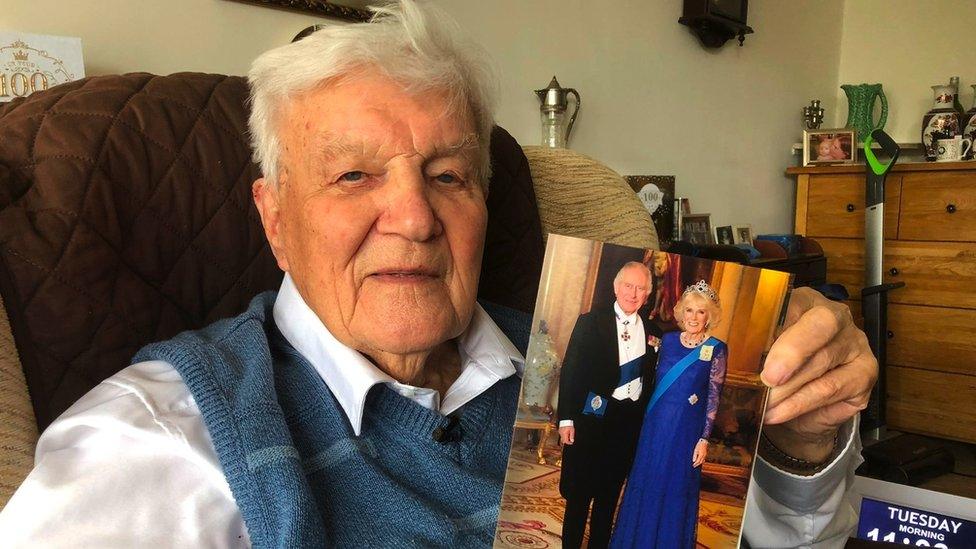Cleeve Hill locals recall "tragic" Halifax bomber crash
- Published
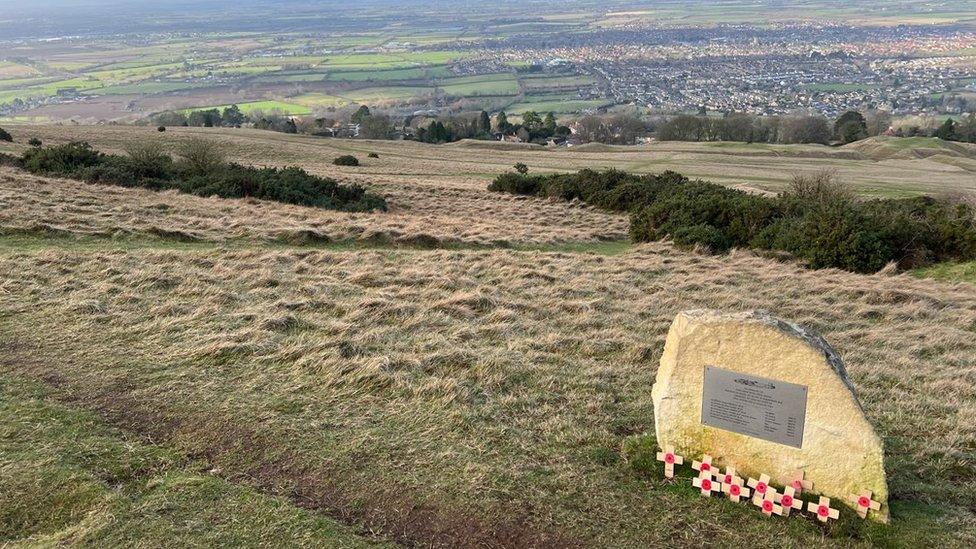
The oldest crew member to lose their life was 32, with the youngest just 19 years old
A service is to be held this year to remember the victims of a Second World War tragedy that killed seven airmen.
The entire crew of the Halifax bomber died when it crashed on Cleeve common near Cheltenham, Gloucestershire.
Ann Dembenski, 90, and Bernard Parkin, 94, remember visiting the wreckage only to find "scattered debris everywhere".
"The body of the plane, the wing, and the engine - they were all lying about. It was very tragic," Mr Parkin said.
All seven members of the MZ311 crew, many of whom were Canadian, were killed in the crash In the early hours of 26 August 1944.
The bomber had been returning from a raid along the French coast and was believed to have been flying at a low altitude upon impact.
Reports from the time indicate the aircraft appeared to have turned away from its flight path home when it struck Cleeve Hill at approximately 200mph.
Neither the RAF accident investigation nor the subsequent court of inquiry were able to fully establish the cause of the crash, as all systems on board appeared to be normal.
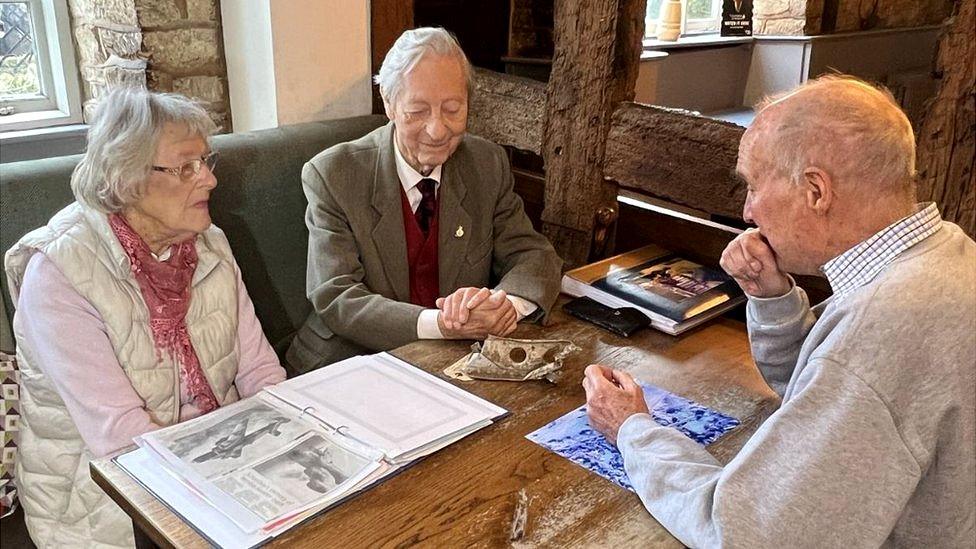
Ms Dembenski and Mr Parkin say they have "distinct" memories of the event
Mr Parkin was among the first people to explore the wreckage, aged just 14, and says he can still see the crash site from his kitchen window.
"Every time I have my breakfast I'm looking out at it," he said.
"It was a bad crash. I found bits of oxygen masks, all the foil from the radar, scattered debris everywhere."
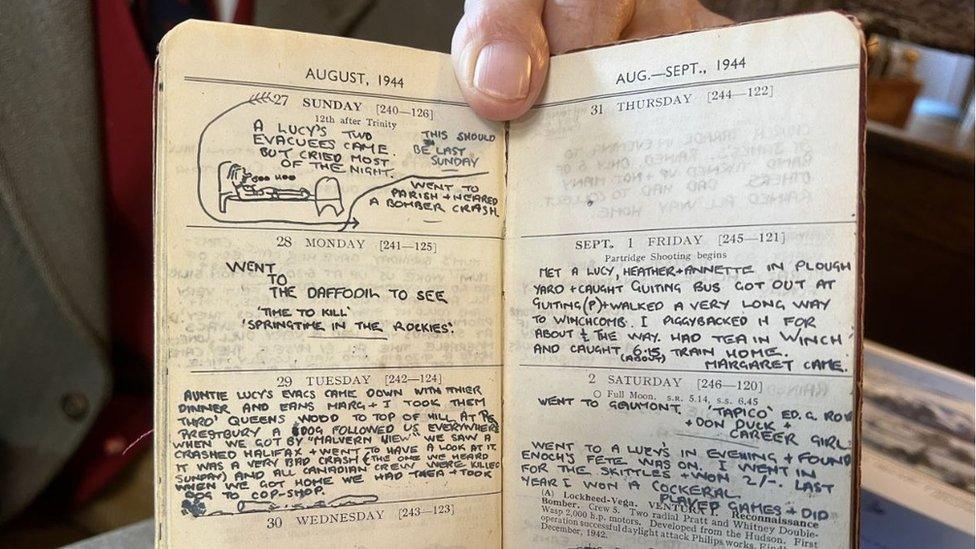
Mr Parkin had documented the crash at the time in a diary entry from 1944
Mr Parkin still has a diary he wrote as a young teenager, which contains a sketch of the debris he saw on the hillside.
In December 2022, members of The Royal Air Forces Association and the Cleeve Common Trust unveiled a memorial for the RAF crewmen, near the summit of Cleeve Hill.
The memorial, from the nearby Common Quarry, is due to be formally dedicated this August on the 80th anniversary of the crash.
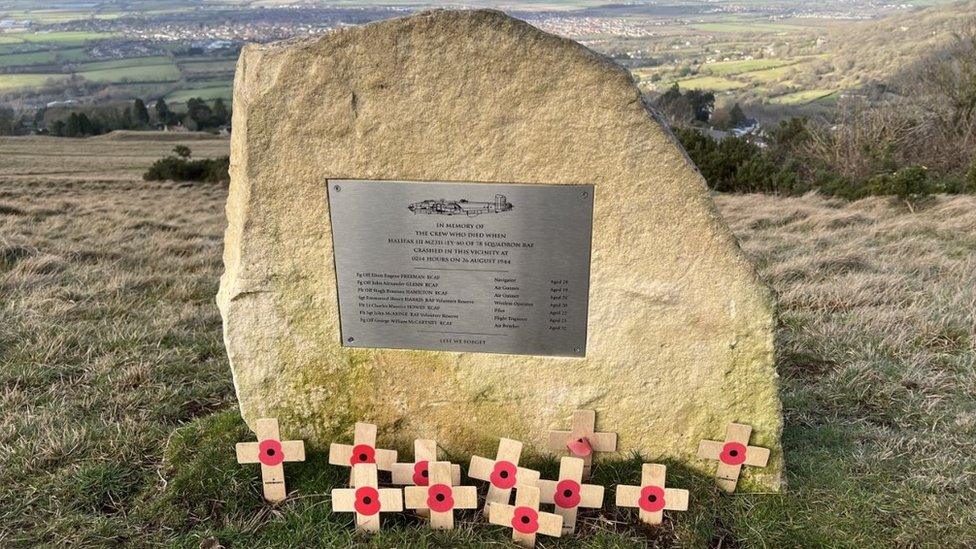
Relatives of the Canadian crew members are due to fly over to attend the memorial dedication in August
"I was a schoolgirl at the time, only 11 years old," said Ms Dembenski, who described Cleeve Common as her "childhood playground".
"It affected everybody, the whole community. There was a great sadness over the whole area.
"A lot of people said a few more feet and they would have cleared the hill, which is true. It was such a sad happening at the time," Ms Dembenski said.
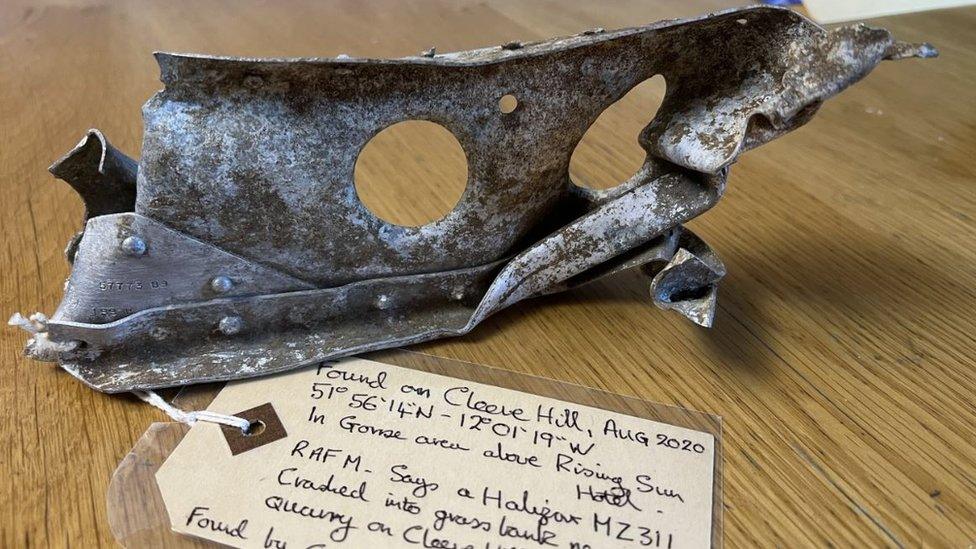
The fragment was identified through serial numbers and is believed to have been a section of the outer wing
In August 2020, a man flying his glider on Cleeve Hill discovered what has now been identified as a piece of the aircraft amongst the gorse bushes.
"This is, as far as we know, is the sole remaining fragment of Halifax MZ311," said Michael Bates, executive officer for the Cleeve Common Trust.
Relatives of the Canadian crew members are due to fly over to attend the memorial dedication in August

Follow BBC West on Facebook, external, X, external and Instagram, external. Send your story ideas to: bristol@bbc.co.uk , external
- Published4 October 2020
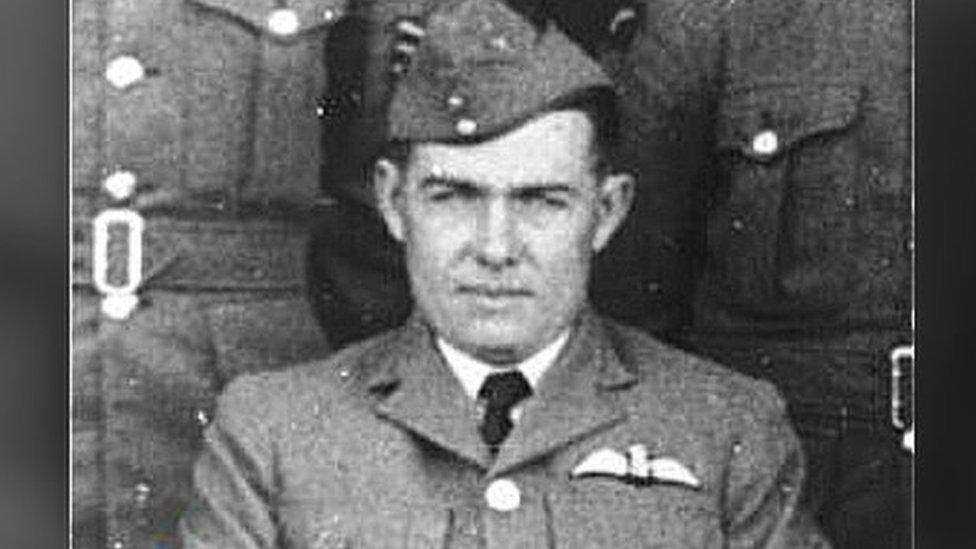
- Published7 February 2023
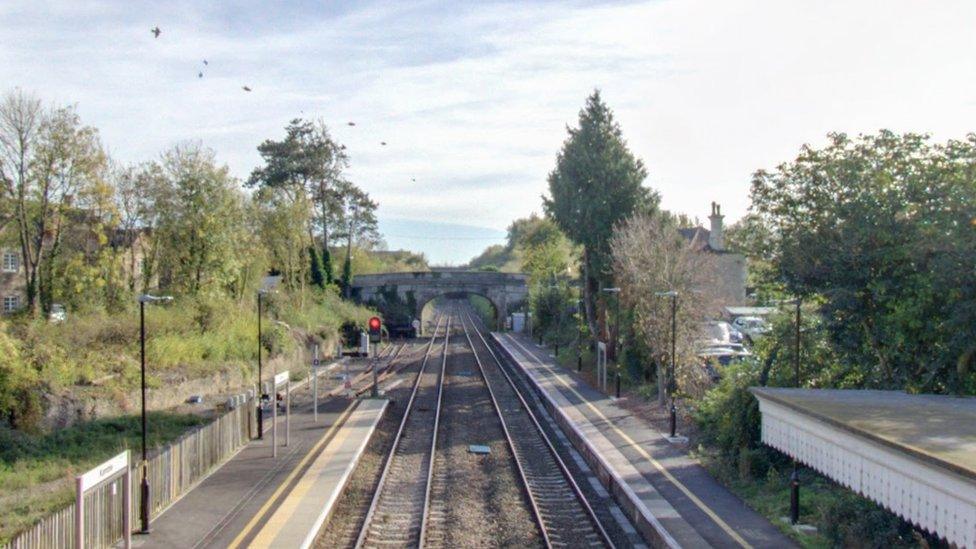
- Published21 March 2023
